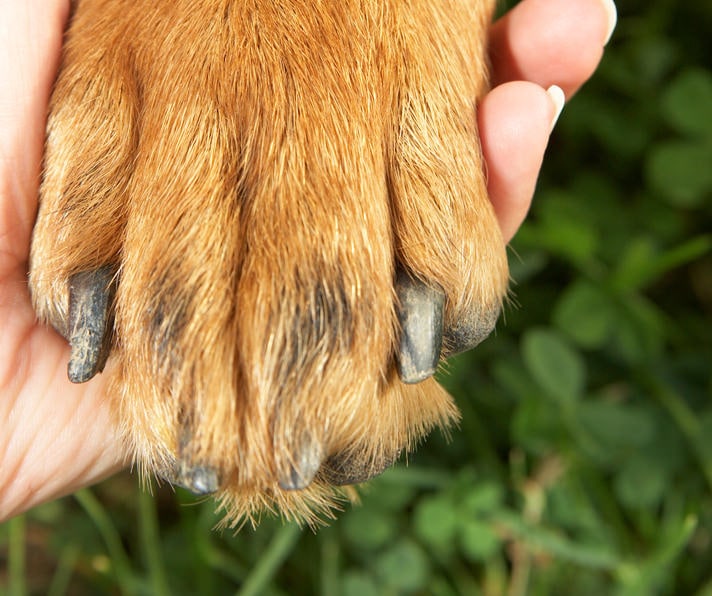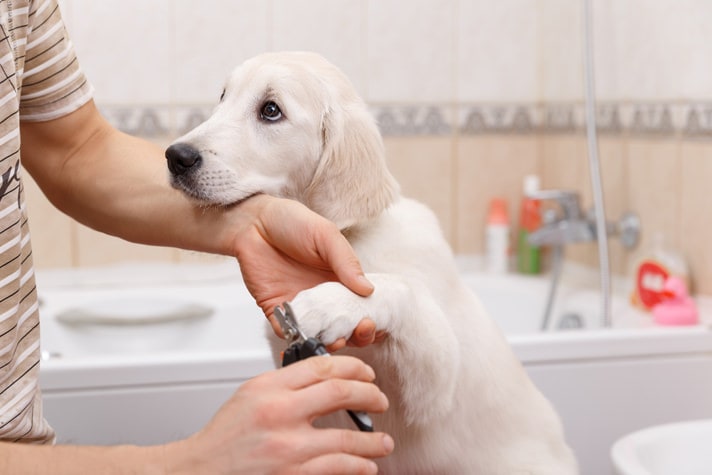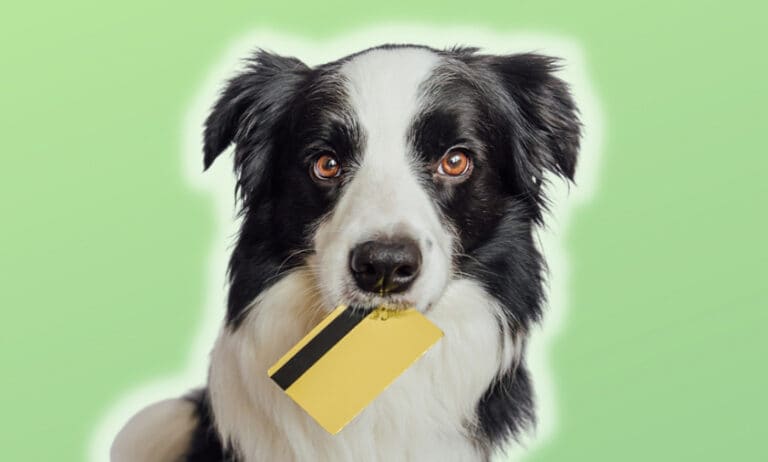Q.
One of our dogs, a 22-month-old Rottweiler, has severe problems with her toenails. They split to the toe, and the nail actually breaks completely off, exposing the quick. We use styptic powder to stop the bleeding, and have been giving her a fatty-acid supplement for six weeks. The fatty-acid supplements have drastically improved her coat, but we haven’t seen an improvement in her nail strength. We have never had to cut her nails because they have always been extremely short. Our vet seems to be out of ideas about what we can do to help improve her nails’ health.
A.
Dry, brittle nails are most commonly due to a skin disease known as lupoid onychodystrophy. Rottweilers are one of the breeds most commonly affected, so there is a good chance that your dog has this disease.
The disease causes the immune system to become overactive, attacking the nails and nail beds, creating fissured or split nails that never totally heal. Treatment is challenging, and can take as long as six months to see positive results. However, before starting treatment, your veterinarian should first submit a sample for biopsy. This involves a minor surgical procedure, where the tip of one of the toes is amputated so it can be examined by a pathologist.
Once diagnosed, lupoid onychodystrophy is treated with a variety of medications, including vitamin E, fish oil (or the fatty-acid capsules you’re already giving) and a combination of medications. This veritable pharmacy of drugs must be prescribed by a veterinarian, and closely monitored.
Because the nail problems are so painful and uncomfortable, I would recommend proceeding ahead with biopsy and treatment if the biopsy confirms the diagnosis. Ask your veterinarian about lupoid onychodystrophy, or a referral to a veterinary dermatologist.
This is not the kind of disease that veterinarians see every day, so it’s not surprising that your veterinarian is stumped. The information regarding the diagnosis and treatment of all veterinary diseases is too vast for any one veterinarian to memorize. Veterinarians are usually resourceful getting information about anything they may not be familiar with, so give your veterinarian a chance to help your dog.
Posted by: Chewy Editorial
Featured Image: iana Makotra/Hemera/Thinkstock
Share:









